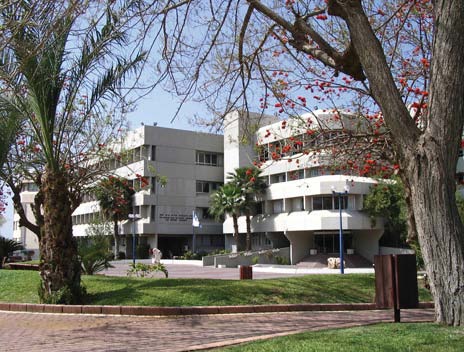
In the historic Neve Zedek neighborhood near the Suzanne Dellal Theater, a sign marks the site of the first Hebrew school for training teachers in Eretz Israel.
One hundred years and some 30,000 graduates later, that institution – the Levinsky College of Education – is still thriving, though over the years, it has moved from Neve Zedek by way of Ben Yehuda St to an extensive campus near the Coastal Road.
Levinsky is not the only teacher' training college in Israel, but it does have something special which is rooted in its history: an emphasis on teaching in the Hebrew language. Today, it seems obvious for the language of instruction to be Hebrew, but that was by no means taken for granted back in 1912, when German or French was common.
According to former Levinsky head Dr Avraham Rocheli, who has been associated with the college since 1974, many schools of the time used European languages in the classroom. "Even when the Technion in Haifa was being planned in 1913, there were heated arguments about whether to teach in Hebrew. People called it the 'language conflict'." It was seen as revolutionary, then, when pioneer members of Hovevei Zion (Lovers of Zion), founded by Dr. Leon Pinsker, Rabbi Shmuel Mohilever and Moshe Leib Lilienblum in 1884, saw Hebrew as a symbol of unity and insisted on its use. They decided that the fledgling teacher's seminary they opened, named after the activist writer Elhanan Levinsky, would teach only in Hebrew.
Over the years, Levinsky has had other links to the history of the country. For example, Dr Rocheli points out, "In the 1940's, the building was used secretly as an important Haganah base."
Prof Lea Kacen, president of the College for the past two years, notes that even today, Hebrew is still central in the Levinsky philosophy of education.
"We are very proud of our variety of Hebrew programs, including literature, children's literature, language and an MA program in language education in multicultural society," she says.
Prof Kacen is passionate about Levinsky's mission – teaching teachers in the best possible way, in order to improve public education in Israel. "We are also unique in focusing solely on education, rather than on other subjects as well. Teaching is our raison d'etre."
One field that Levinsky specializes in is music education. "Research has shown that music makes a difference in people's lives in terms of values and a lowering of violence. Music is now having a revival in schools and cities and we are training music teachers for jobs everywhere. We want music to be part of core studies in schools," says Prof Kacen.
Other innovative offerings include an Excellence program for outstanding students, a network of educational partnerships in communities, a school for international students to help them acquire advanced educational and Jewish skills while becoming socially involved in Israel and a Center for Educational Technology. A Research and Development Authority encourages faculty members to conduct research and promote innovative initiatives.
Another feature that characterizes Levinsky is its emphasis on field training.
"Levinsky doesn't just teach students how to teach but gives them practical teaching experience," says Dr Rocheli. "They jump into the water from the beginning, with the guidance of a pedagogical mentor”.
But perhaps the most significant recent change has been an emphasis on the academic status of the teaching profession. Levinsky College was the first teacher education institution to receive full scale academic status from the Council of Higher Education and awards academic degrees.
Prof Kacen, who formerly headed the Spitzer Department of Social Work at Ben Gurion University of the Negev, is a strong believer in that trend.
"I see education more broadly, from an academic context," she says. "We are lecturers, not teachers here. The status of college lecturers needs raising and I flourish on such challenges."
She has started a Friends Association and a think tank that involves people from all sectors of the Israeli community, including technology and business experts, with the aim of conceptualizing how a teacher should be educated both today and in the future. She is well aware that teaching has changed and that training teachers must change as well.
"The paradigm of standing in front of the board with chalk in hand is no longer relevant. A teacher must be a mentor and supervisor who can help a student learn through discussion. What we should be teaching is how to help a student choose from among the many sources of information, how to decide among alternatives and how to work as a team."
Of course, she adds, Israeli education is not without its problems, among them overcrowded classrooms and the rise in private education at the expense of the public school system. Further, she deplores the fact that teacher's colleges like Levinsky are under the direction of bureaucratic administrators in the Ministry of Education, which limits their academic freedom and contributes to the lack of status of the colleges as compared to university departments of education. This is in spite of the fact that she believes the colleges' practical approach to teacher training turns out better professionals than do the universities.
In spite of the flaws in the system, Prof Kacen is optimistic.
"I see so many young people who want to be educators today, out of idealism. Some of them are doctors, engineers, journalists – people with careers. When I ask them why, they say that they want to contribute what they know. And that gives me hope."
Overseas students welcome too
The Levinsky College of Education International School in Tel Aviv offers a program for overseas students who wish to be closely acquainted with the Israeli academic and social-cultural atmosphere, in Spanish, Russian and English.
Levinsky's Ulpan in Hebrew is a framework for studying Hebrew in an educational and supportive environment. The Ulpan is an intensive course that fosters acquisition of the Hebrew language together with basic Israeli cultural and traditional courses.
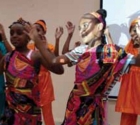 End of Year Event - Hefzibah, Netanya
End of Year Event - Hefzibah, Netanya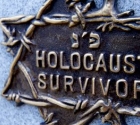 Additional 1-time Payment to Survivors who worked in the Ghetto
Additional 1-time Payment to Survivors who worked in the Ghetto ITAMAR MAKES FRIENDS - A Review
ITAMAR MAKES FRIENDS - A Review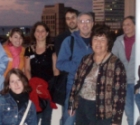 Midrash Meets Tel Aviv Culture
Midrash Meets Tel Aviv Culture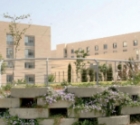 The Open University of Israel
The Open University of Israel MUMMIES, MYTHS AND MAGIC CATS IN ANCIENT EGYPT
MUMMIES, MYTHS AND MAGIC CATS IN ANCIENT EGYPT Carol Novis
Carol Novis